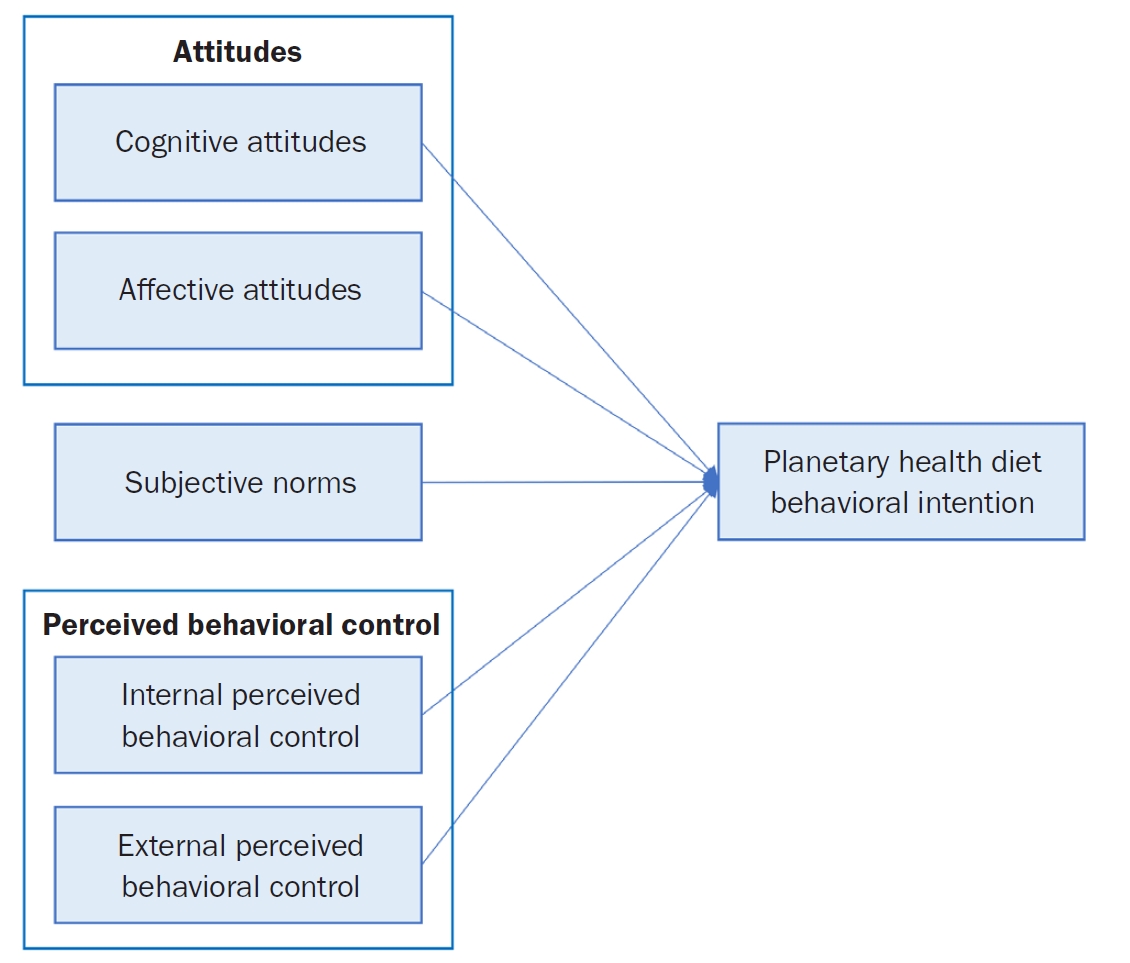- [Korean]
-
Behavioral intention toward planetary health diet among adult users of government worksite cafeterias in Seoul, South Korea: a mixed-methods study based on the theory of planned behavior and focus groups interviews
-
Ji-Won Kang, Su-Jin Lee, Sil-Ah Kim, Ji-Yun Hwang
-
Korean J Community Nutr 2025;30(3):224-236. Published online June 30, 2025
-
DOI: https://doi.org/10.5720/kjcn.2025.00108
-
-
 Abstract Abstract
 PDF PDF
- Objectives
To reduce urban carbon emissions, in this study, we aimed to suggest strategies for disseminating the planetary health diet (PHD) guidelines to adult cafeterias in a government worksite in Seoul based on the theory of planned behavior (TPB) and focus group interviews (FGI).
Methods
A total of 132 adults who worked at a government worksite in Seoul and used its cafeteria were included for a TPB-based survey. Factor analyses and multiple regression were used to investigate the relationships between attitude (cognitive•affective), subjective norms, and perceived behavioral control (PBC, internal•external) and the behavioral intention to adopt the PHD. To identify the contextual factors related to PHD dissemination, 14 participants underwent in-depth interviews.
Results
Affective attitudes and PBC (internal•external) constructs of the TPB were significantly related with the intention to adopt PHD: external PBC (β = 0.324, P < 0.001), internal PBC (β = 0.269, P < 0.01), and affective attitudes (β = 0.226, P < 0.05). The FGI results highlighted the insufficiency of simply providing healthy meals to encourage the adoption of PHDs, but that menu development and natural acceptance strategies are needed to increase palatability. In addition, the need for strategies to promote PHDs at an organizational level was identified, as it is directly influenced by the company of partners with whom one dines. Furthermore, users' perceptions of how “Meals for the Planet” are delivered and suggestions for its improvement were also interpreted.
Conclusion
Our results suggest that users' beliefs, convictions, and emotions are important while promoting or educating individuals about sustainable PHDs. Our findings are expected to help local governments or private group cafeterias that wish to introduce PHDs in the future, given the growing importance of environmentally conscious eating.
-
Citations
Citations to this article as recorded by  - Planetary Health Diet Adherence in Korean Adults: Association with the Korean Healthy Eating Index
Su-Jin Lee, Ji-Yun Hwang
Nutrients.2025; 17(19): 3060. CrossRef - Toward the development of a digital self-nutrition management education program for elderly: findings from focus groups study
Hae-song Yoo, Jin-myong Lee, Min-sun Jeon
Korean Journal of Community Nutrition.2025; 30(6): 431. CrossRef
-
1,321
View
-
57
Download
-
2
Crossref
|




